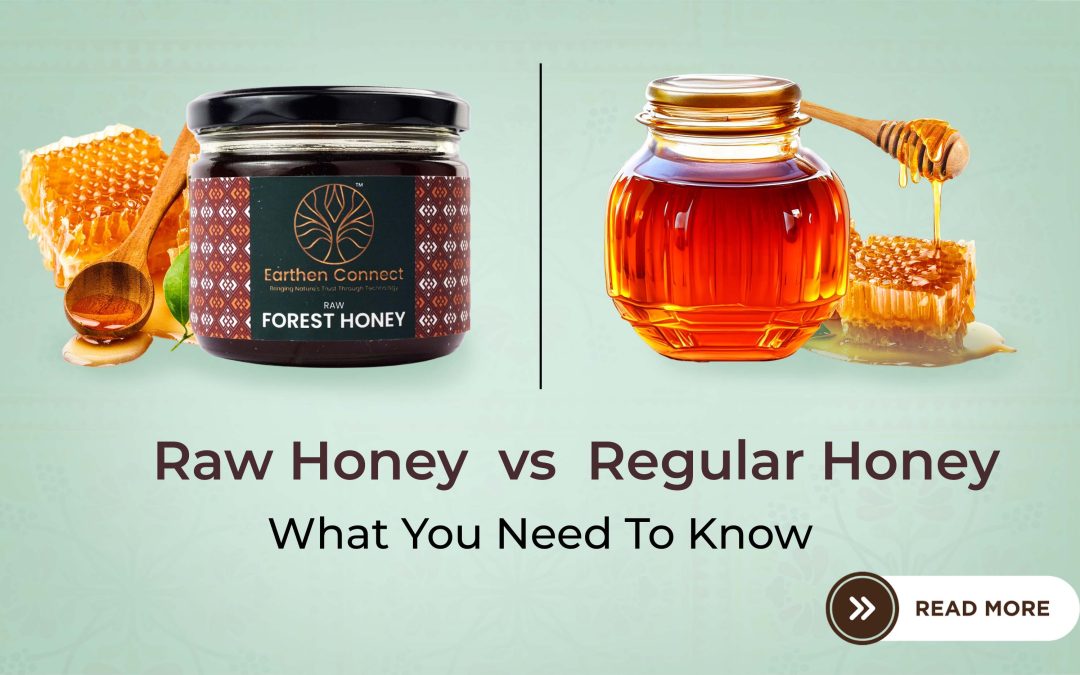Introduction
Honey has for some time been appreciated for its pleasantness and prosperity benefits, with various sorts open on the ad these days. Among these, crude honey and normal nectar are two well known choices, each with unmistakable characteristics. As shopper mindfulness of common and natural items develops, the request for unadulterated honey has surged. Raw honey, in specific, stands out due to its negligible processing, which preserves its normal proteins, cancer prevention agents, and nutrients. For those looking to buy raw honey, understanding the contrasts between crude nectar and customary nectar is fundamental to making an educated choice. Whether you’re looking for wellbeing benefits or prevalent taste, choosing crude nectar can improve your culinary and wellness experience.
What is Raw Honey?
Raw honey is honey in its purest form, harvested specifically from the bee sanctuary and subjected to negligible handling. Unlike customary honey, which regularly experiences pasteurization and broad filtration, raw honey isn’t heated or pasteurized. This conservation of normal chemicals, antioxidants, and nutrients may be a key characteristic of raw nectar, making it a predominant choice for health-conscious buyers.
The gathering handle of raw honey includes extricating honeycomb outlines from the hive and permitting the nectar to dribble out normally, or tenderly squeezing it. This strategy guarantees that the nectar holds its full range of useful compounds, counting dust, propolis, and beeswax particles. These components not as it were contribute to the wealthy, complex flavor of crude nectar but moreover upgrade its wellbeing benefits.
The purity of crude nectar is unparalleled, because it remains in a state closest to what bees create within the hive. This need of warm treatment and negligible preparation is what sets crude nectar apart from its normal partner. For those looking to buy pure honey, choosing crude nectar ensures an item that’s wealthy in normal goodness and free from added substances or intemperate handling. Embracing raw honey implies getting a charge out of an item that is both nutritiously strong and deliciously authentic.
What is Regular Honey?
Regular honey, commonly accessible in basic supply stores, experiences noteworthy commercial handling to progress its appearance, surface, and rack life. This handling ordinarily incorporates pasteurization, where the nectar is heated to tall temperatures to destroy yeast cells and anticipate aging. This step is aiming to expand the honey’s rack life and anticipate crystallization. Also, filtration is utilized to expel pollutants such as dust, beeswax, and propolis, coming about in a clearer, more outwardly engaging item.
In any case, these forms come at a fetch. Pasteurization and filtration can strip honey of its common proteins, cancer prevention agents, and useful compounds that are inexhaustibly displayed in crude nectar. The high temperatures utilized in pasteurization can corrupt vitamins and proteins, lessening the generally dietary esteem of the nectar. In addition, regular honey may now and then contain included fixings such as high fructose corn syrup or other sweeteners to preserve consistency and improve flavor.
In contrast, raw honey is negligibly prepared, protecting its normal supplements and chemicals. For buyers looking to buy pure honey, raw honey is the prevalent choice. It offers a richer taste and holds the advantageous properties that make nectar a profitable expansion to a healthy diet. Picking for raw honey guarantees you’re getting an item that’s closer to its common state, free from intemperate preparation and added substances.
Benefits of Raw Honey vs Regular Honey
Raw honey offers various wellbeing benefits due to its wealthy substance of cancer prevention agents, chemicals, and supplements, which are protected through negligible processing. These compounds offer assistance to boost the safe framework, advance stomach related wellbeing, and give anti-inflammatory impacts. The presence of dust and propolis in raw honey too contributes to its health-boosting properties.
In differentiation, standard nectar experiences pasteurization and filtration, which can essentially diminish its dietary esteem. The high temperatures utilized in pasteurization annihilate advantageous proteins and cancer prevention agents, making regular honey less strong in wellbeing benefits compared to crude nectar.
Raw honey also excels in taste and surface, advertising a more complex flavor profile and a thicker, in some cases grainy consistency due to the held characteristic components. This immaculateness and abundance make crude nectar a favored choice for those looking to buy pure honey.
Be that as it may, potential disadvantages incorporate a shorter rack life and conceivable crystallization. In spite of these contemplations, for those prioritizing wellbeing benefits and normal items, choosing raw honey could be a wise choice.
Conclusion
Raw honey and regular honey differ significantly in terms of processing, nutritional content, and overall benefits. Raw honey, with its minimal processing, retains natural enzymes, antioxidants, and nutrients, offering superior health benefits. Its rich flavor and thick texture also enhance the culinary experience. On the other hand, regular honey undergoes pasteurization and filtration, which reduce its nutritional value and purity.
Choosing raw honey means opting for a product that is closer to its natural state, providing better health benefits and a more authentic taste. For those looking to purchase pure honey, raw honey is undoubtedly the superior choice. To ensure you get the highest quality, Choose Earthen Connect’s Raw Forest Honey. Sourced directly from pristine forests, this honey is meticulously harvested and minimally processed to preserve its natural goodness. With Earthen Connect, you can trust that you are getting a product that is pure, potent, and packed with nature’s best. Embrace the natural goodness of Earthen Connect’s Raw Forest Honey and enjoy the numerous advantages it brings to your health and well-being.

